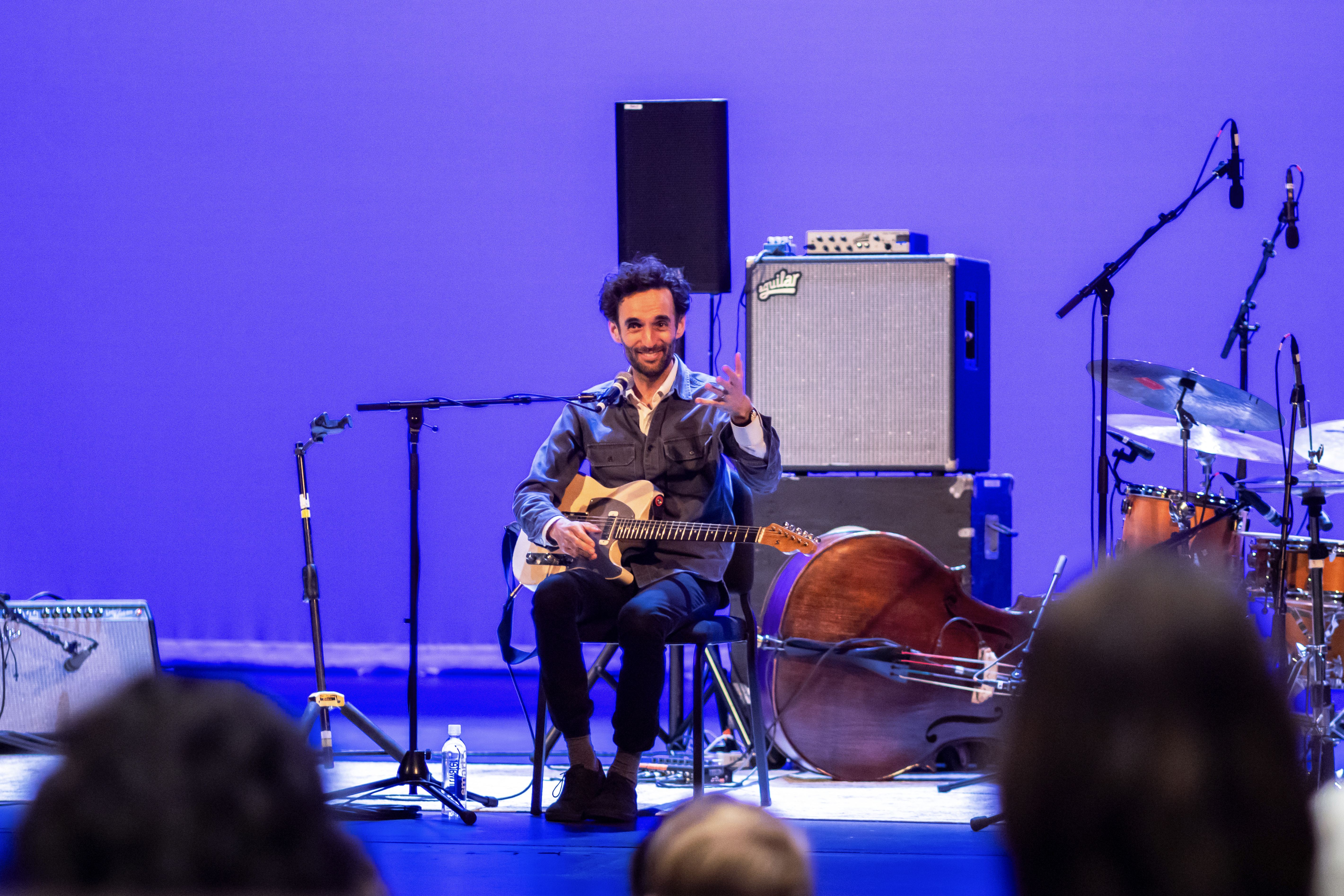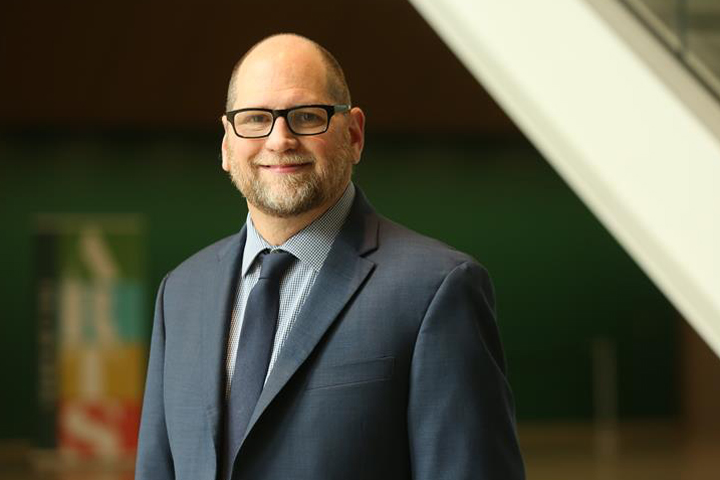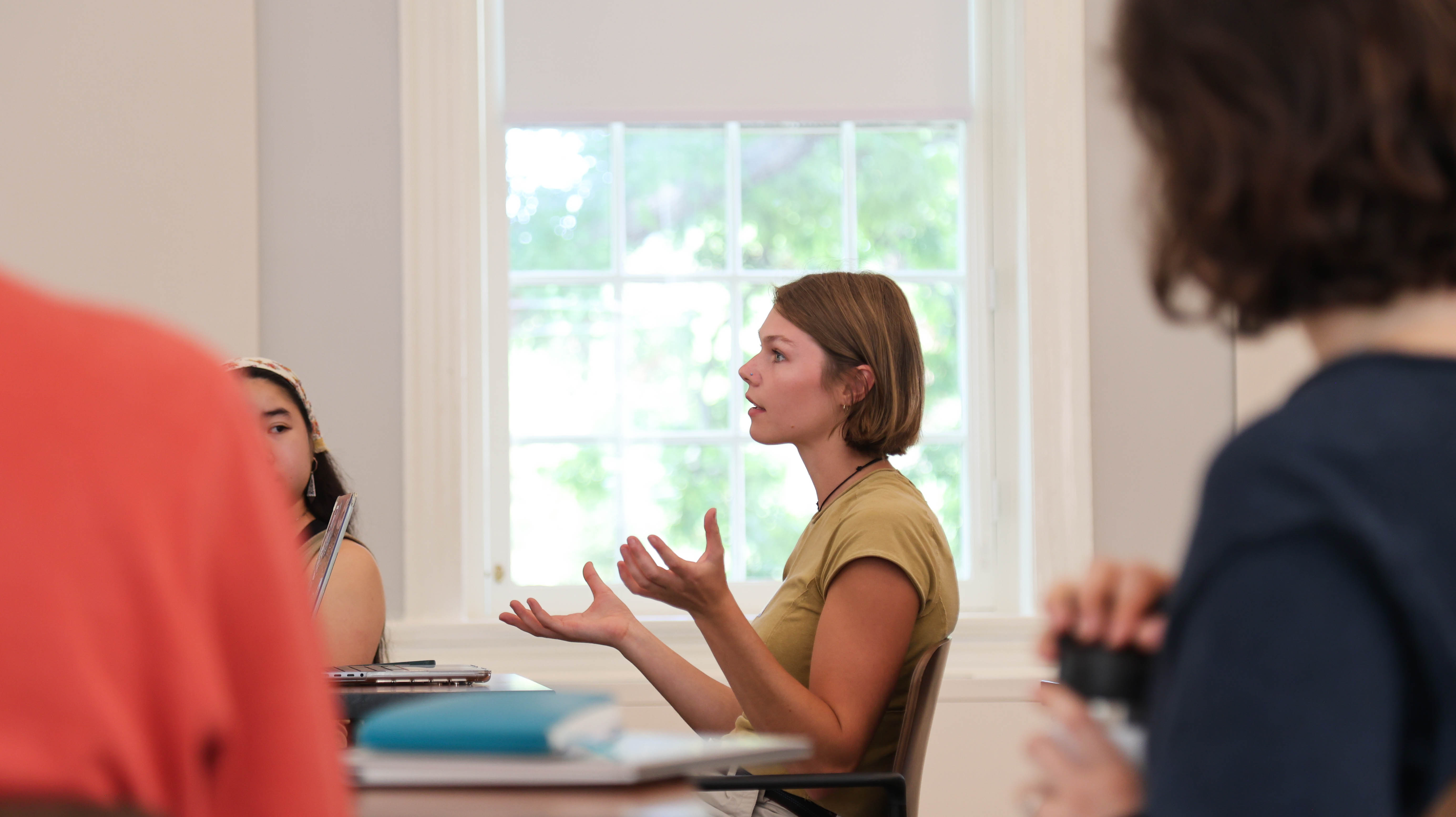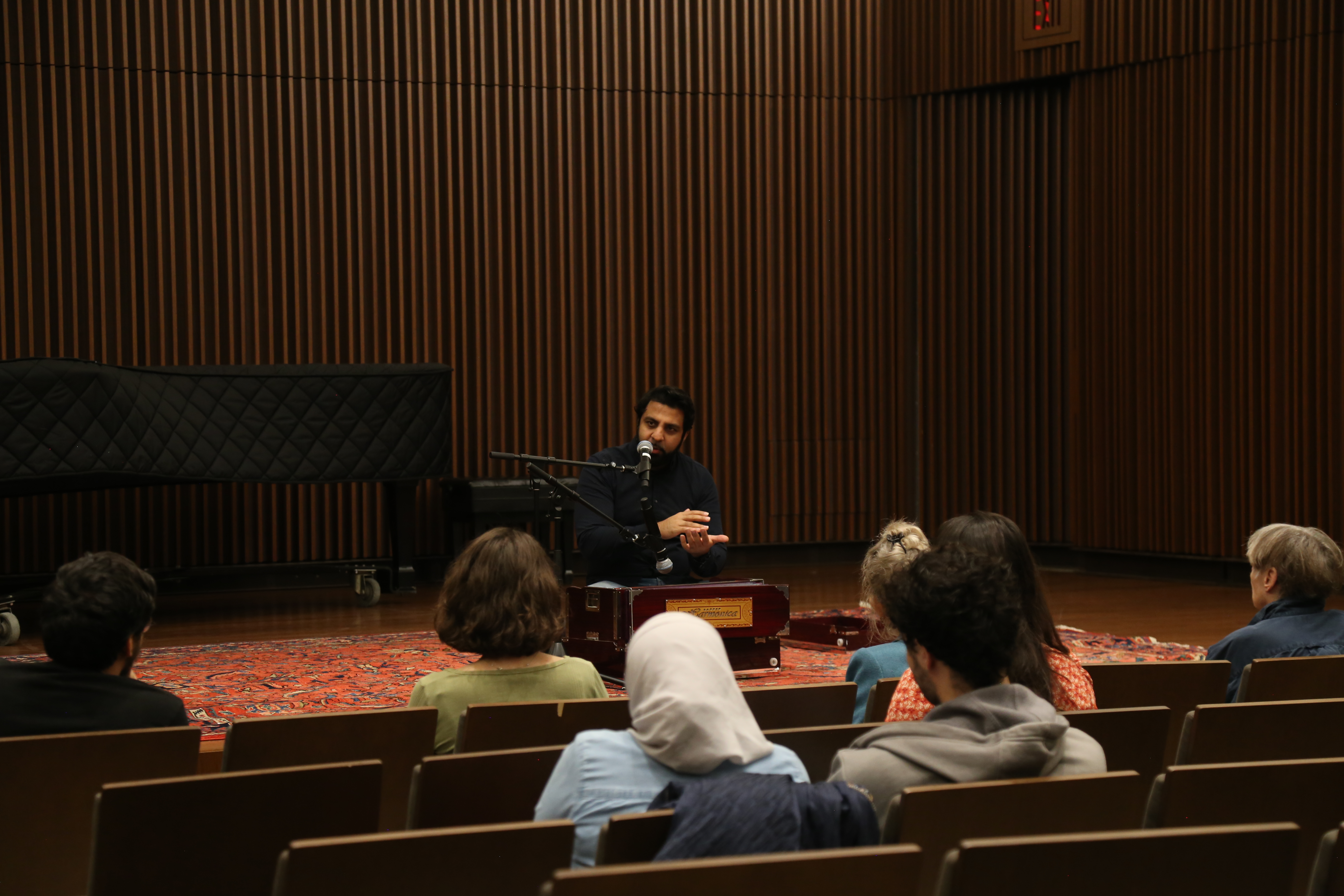Arts masterclasses connect campus community with world-class performers
 The arts are experiencing a renaissance at William & Mary, including unprecedented opportunities for mentorship from world-class performers in artistic development and expression.
The arts are experiencing a renaissance at William & Mary, including unprecedented opportunities for mentorship from world-class performers in artistic development and expression.
During the 2024-25 academic year, the Charles Center is sponsoring a new Arts Masterclass series in partnership with the Office of the Arts at William & Mary dedicated to creating opportunities for artistic exploration and discovery across disciplines, from music to dance and everything in between.
The series features six unique sessions and provides the campus community opportunities to engage directly with acclaimed professionals, including Grammy Award-winning and nominated performers. The series is funded through the Elliot E. and Helen Y. Cohen Forum Endowment.
According to Executive & Artistic Director of the Arts Eric Despard, the masterclass series brings W&M’s thriving artistic community into close contact with leaders in performing arts fields.
 “It really comes down to giving students and the community access to these amazing artists that we’re bringing in,” Despard explained. “A lot can be gained from the educational aspects of the performances, not just by bringing in artists to perform, but also by having the opportunity to interact more deeply with these artists.”
“It really comes down to giving students and the community access to these amazing artists that we’re bringing in,” Despard explained. “A lot can be gained from the educational aspects of the performances, not just by bringing in artists to perform, but also by having the opportunity to interact more deeply with these artists.”
The series adds yet another dimension to the university’s Year of the Arts, a celebration of the expanding facilities and programs for arts education on campus. The opening of the renovated and expanded Arts Quarter in Fall 2023, along with the anticipated re-opening of the Muscarelle Museum in early 2025, reflects the proliferation of artistic innovation on campus.
The collaboration between the Office of the Arts at William & Mary and the Charles Center builds upon existing programs such as the Louis E. Catron Grant for Artistic Development, which supports undergraduates’ artistic growth in the creative and performing arts through off-campus educational experiences, according to Charles Center Director Elizabeth Harbron.
“We’re always looking for new and effective ways to create opportunities for students to learn outside the bounds of the traditional classroom,” Harbron said. “The arts masterclasses—as well as our new journalism masterclass series—create moments of mentorship and inspiration that can forever change a student’s academic or professional trajectory.”
 Despard explained that artists performing in the arts masterclass series were carefully selected for their unique dedication to mentorship and a deep commitment to inspiring the next generation of performing artists.
Despard explained that artists performing in the arts masterclass series were carefully selected for their unique dedication to mentorship and a deep commitment to inspiring the next generation of performing artists.
“Some artists just want to come in, play, and go onto the next gig—they’re not really into that aspect of engagement. But I particularly sought out these artists who had that ability and desire to engage with students and the community,” said Despard.
The series kicked off Sept. 29 with Alan Morrison, one of the country’s most renowned concert organists. Morrison has performed all over the world, showcasing his skills across the Americas as well as Europe and Russia. During his visit to the university, Morrison worked with organ students on improving their technique and musical expertise.
On Oct. 17, guitar prodigy Julian Lage presented the series’ second masterclass in the Phi Beta Kappa Memorial Hall’s Glenn Close Theatre. Widely regarded as one of the most talented guitarists of his generation, Lage was heralded by the New Yorker as the “highest category of improvising musicians.” The masterclass took on a workshop-like format, with Lage performing various songs and concluding with a Q&A session.
 Adding a unique cultural perspective to the series, the South Asian musical ensemble Riyaaz Qawwali held a masterclass Nov. 11 following their Nov. 9 concert in the Music Arts Center concert hall. Qawwali is a form of devotional music in the Sufi tradition from India, Pakistan, and Bangladesh.
Adding a unique cultural perspective to the series, the South Asian musical ensemble Riyaaz Qawwali held a masterclass Nov. 11 following their Nov. 9 concert in the Music Arts Center concert hall. Qawwali is a form of devotional music in the Sufi tradition from India, Pakistan, and Bangladesh.
The group has performed throughout the United States, South America, and Europe. Their upcoming masterclass will allow students and community members to connect with and learn from the highly experienced vocal and instrumental musicians.
On Jan. 26, saxophonist and flautist Steve Wilson will host a masterclass in the Music Arts Center Concert Hall with George Cables, Director of Jazz Studies at City College of New York. Both Cables and Wilson are prominent voices in the modern jazz world.
Over the evolution of Cables’ career, he has performed with many well-known jazz musicians including Joe Henderson and Roy Haynes. Wilson serves as a professor and co-director of the Ravinia Steans Music Institute Program for Jazz. He has visited and performed at a variety of institutions throughout the United States, Canada, Europe, China, and Japan.
After Wilson and Cables, the next masterclass will feature Benjamin Verdery and the Ulysses Quartet. Verdery is an esteemed composer and guitarist who serves as the chair of the guitar department at Yale and has released over 17 albums throughout the course of his career.
The Ulysses Quartet, a professional string quartet based in New York City, has received numerous musical honors and awards and has performed in many prestigious venues both domestically and internationally. Last year, Verdery and the Quartet released an album together called A Giant Beside You.
Verdery and the Ulysses Quartet will work directly with William & Mary guitar and string students during the visit. “There are over 70 guitar students here at W&M, and I think they'll really appreciate having a guitarist of this caliber on campus,” Despard said.
The masterclass series will conclude in early May with members of the acclaimed Mark Morris Dance Group, an internationally recognized New York-based modern dance company. The workshop will primarily cater to university dance students and will feature a presentation of Pepperland, a celebration of the late 1960s Sgt. Pepper’s era of music.
If students and the community can take one thing away from the opportunity to engage with this array of remarkable artists, it is the level of dedication that the performing arts involves.
“It takes a tremendous amount of work, discipline, and practice it takes to be an artist,” Despard said. “It's a lifelong endeavor, and these artists are still evolving, still growing, and still learning.”














